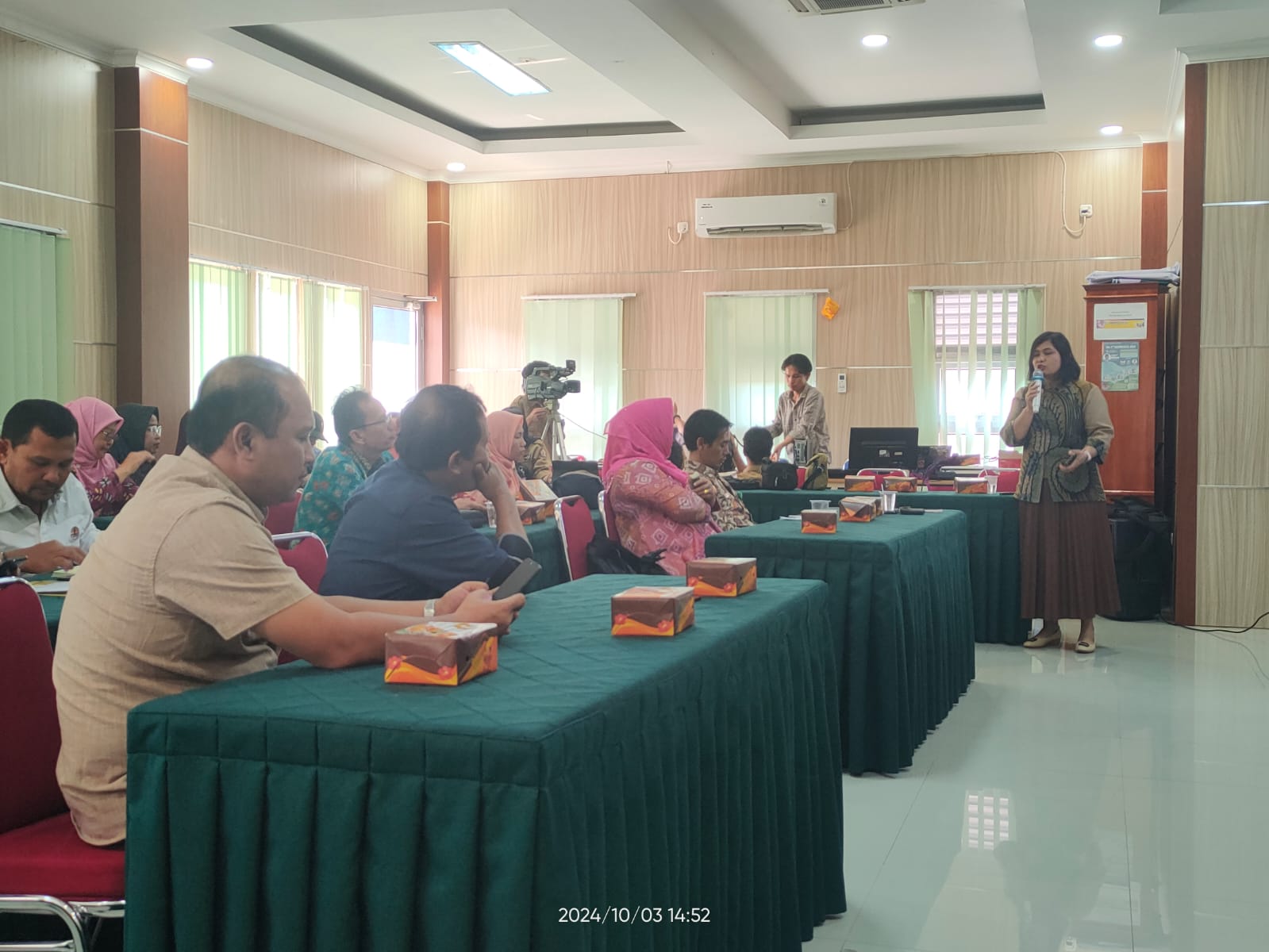
TroBiCA and the Forestry Department Successfully Hold the First TroBiCA Talks Event
Bengkulu, October 3, 2024 – The Research Group for Tropical Biodiversity, Conservation, and Agroecosystem (TroBiCA) and the Forestry Department of the Faculty of Agriculture UNIB, held the first TroBiCA Talks event, which successfully attracted the attention of academics, practitioners, and environmental observers. The event, which took place from 14.00 to 16.00 WIB, was held in the Meeting Room of the Faculty of Agriculture, University of Bengkulu, with the main title “The Metabolite Profiling of Azadirechta excelsa (Kayu Bawang).“
TroBiCA Talks was initiated as a platform to facilitate the dissemination of scientific knowledge and research results related to tropical biodiversity and its conservation efforts. This event is also a means to strengthen the synergy between academics, government, and the community in managing natural resources, especially in Bengkulu Province. TroBiCA itself is a research group that focuses on tropical biodiversity conservation and agroecosystems, seeking to educate and mobilize the community in preserving Indonesia’s natural wealth.
This inaugural event featured Dr. Efratenta K. Depari as the main speaker. She is a lecturer from the Forestry Department of the University of Bengkulu who has expertise in tropical silviculture and biodiversity. In her presentation, Dr. Efratenta discussed the results of his latest research on Azadirechta excelsa, better known as the Kayu Bawang tree. This research focuses on the metabolite profile of the species, which is one of the endemic trees in Bengkulu.
Kayu Bawang has high ecological value because it is a native species that plays an important role in maintaining the balance of the tropical forest ecosystem in Bengkulu. In addition, this study shows the potential for utilizing metabolites from the tree in the pharmaceutical and biotechnology industries. This potential, according to Dr. Efratenta, can be utilized to improve the welfare of local communities through the development of sustainable non-timber forest product-based products.
In his presentation, Dr. Efratenta emphasized the importance of research related to local species such as Kayu Bawang, especially in the context of biodiversity conservation. “Research on metabolites from native species such as Azadirechta excelsa not only provides scientific benefits but also plays a role in efforts to conserve forests and endangered tropical species,” said Dr. Efratenta.
The first TroBiCA Talks also discussed efforts to conserve the species as part of a grand strategy for biodiversity management in Bengkulu. With the various pressures facing tropical forests, such as deforestation and climate change, the preservation of native species is becoming increasingly crucial. Dr. Efratenta hopes that the results of his research can be the basis for developing sustainable conservation policies, as well as opening up opportunities for local governments and communities to collaborate in conservation efforts.
The TroBiCA Talks event was attended by various parties, including lecturers, students, and representatives of local governments. The presence of the invitees showed enthusiasm for the issue of biodiversity conservation. The Head of TroBiCA, Prof. Prof. Agus Susatya, in his speech, expressed his hope that discussions like this will continue to be held periodically. “We hope that TroBiCA Talks will be a forum for exchanging ideas and real solutions to environmental problems faced by the community, especially in the context of sustainable natural resource management,” said Prof. Agus.
This event is also expected to strengthen the synergy between academics and the government in overcoming the various challenges faced by tropical forests. One hope is that research such as that presented by Dr. Efratenta can be applied in environmental and conservation programs at the local and national levels.
This first TroBiCA Talks has opened the door for further discussions related to the preservation of tropical biodiversity. This event not only provided new scientific insights into the potential of endemic species such as Kayu Bawang but also emphasized the importance of cross-sectoral cooperation in nature conservation efforts. TroBiCA plans to hold more discussions involving experts from various fields, with the hope of increasing awareness and real action to maintain Indonesia’s rich biodiversity.
With the success of this event, TroBiCA and the Forestry Department demonstrated their commitment to supporting biodiversity research and conservation. The next TroBiCA Talks event is expected to be a bigger forum involving more stakeholders.